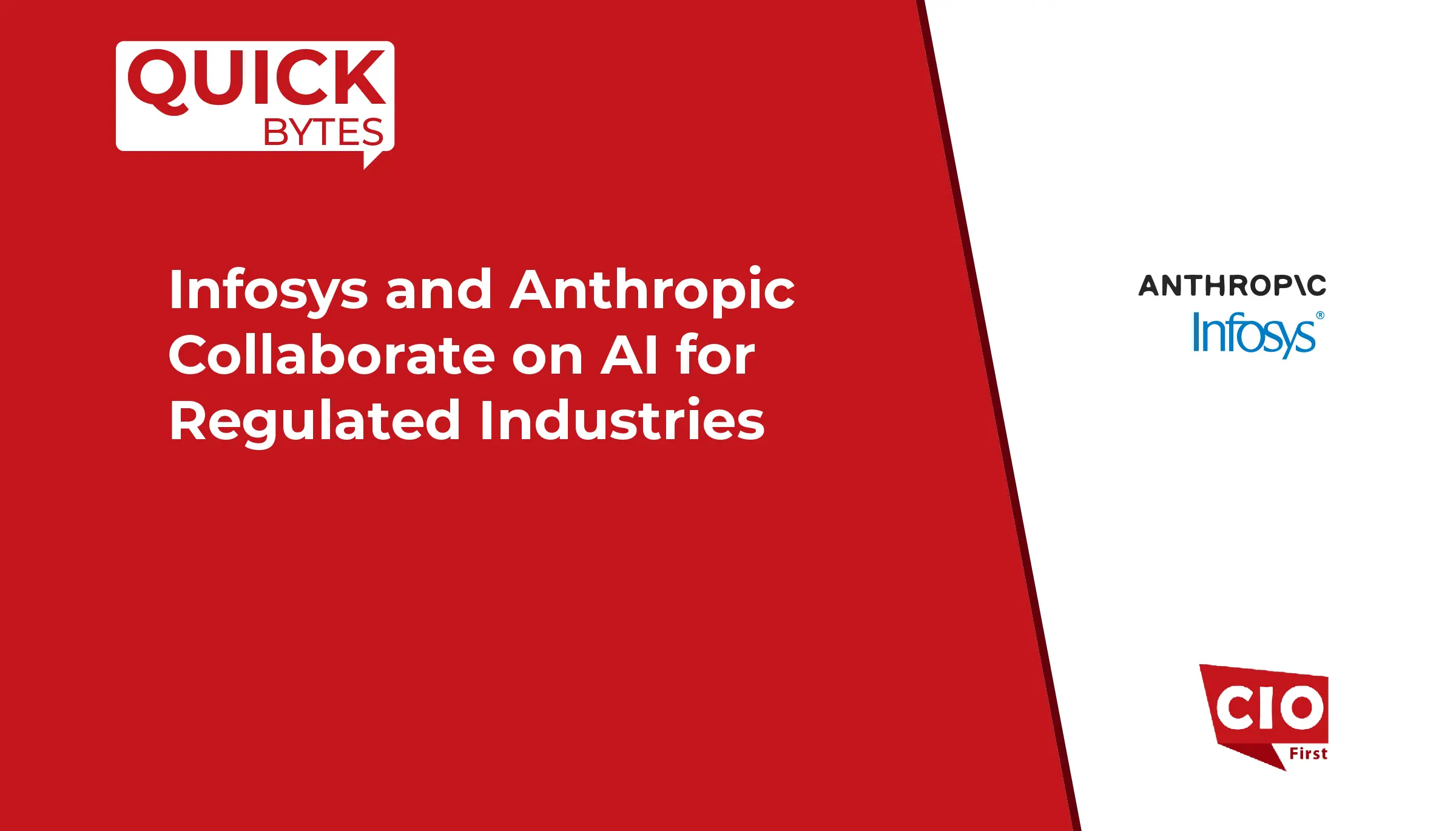Oracle announced that it has been recognized by Gartner in three recently published cloud database reports. Oracle is a Leader in the 2023 Gartner Magic Quadrant for Cloud Database Management Systems and for the sixth consecutive year, Oracle Autonomous Database for Transaction Processing (ATP) scored highest in all three Use Cases in the 2023 Gartner Critical Capabilities for Cloud Database Management Systems for Operational Use Cases report. In addition, Oracle Autonomous Database for Data Warehouse (ADW) scored highest for Traditional Data Warehouse and second highest for Logical Data Warehouse Use Cases in the 2023 Gartner Critical Capabilities for Cloud Database Management Systems for Analytical Use Cases report.
Among the 16 vendors evaluated, Oracle ATP scored highest for all three Operational Use Cases – OLTP Transactions; Lightweight Transactions; and Operational Intelligence.
“We are pleased by this Gartner recognition of the breakthrough capabilities of Oracle Autonomous Database and other Oracle Database Cloud Services. With our Database Cloud Services on Oracle Database 23c, we continue to innovate with new capabilities like JSON duality views and AI Vector Search,” said Andrew Mendelsohn, executive vice president, Database Server Technologies, Oracle. “Additionally, our customers are thrilled to see Oracle executing on its multicloud vision by offering our Database Cloud Services at Microsoft Azure.”
Also Read: CallTower Named Cloud-Connected Calling Enablement Leader 2024 by Frost & Sullivan.
As the industry’s first self-driving database, Oracle Autonomous Database can automatically secure highly available databases, configure and optimize for specific workloads, and scale resources when needed. Autonomous Database is available wherever customers need it. It runs natively on Oracle Cloud Infrastructure (OCI) in the Oracle Cloud and will be available in Microsoft Azure data centers through Oracle Database@Azure. Additionally, it runs in customers’ data centers through Oracle Exadata Cloud@Customer and OCI Dedicated Region, enabling customers to modernize their database infrastructure on-premises to address data residency, data sovereignty, and latency requirements.
SOURCE: PRNewsWire


























My spouse and I stumbled over here by a different web page
and thought I may as well check things out. I like what I see so now i’m
following you. Look forward to going over your web page yet again.
**boostaro**
boostaro is a specially crafted dietary supplement for men who want to elevate their overall health and vitality.
**backbiome**
backbiome is a naturally crafted, research-backed daily supplement formulated to gently relieve back tension and soothe sciatic discomfort.
**alpha boost**
alpha boost for men, feeling strong, energized, and confident is closely tied to overall quality of life. However, with age, stress, and daily demands
**hepatoburn**
hepatoburn is a high-quality, plant-forward dietary blend created to nourish liver function, encourage a healthy metabolic rhythm, and support the bodys natural fat-processing pathways.
**nervecalm**
nervecalm is a high-quality nutritional supplement crafted to promote nerve wellness, ease chronic discomfort, and boost everyday vitality.
**nitric boost ultra**
nitric boost is a daily wellness blend formulated to elevate vitality and support overall performance.
**aquasculpt**
aquasculpt is a revolutionary supplement crafted to aid weight management by naturally accelerating metabolism
**prodentim**
prodentim is a distinctive oral-care formula that pairs targeted probiotics with plant-based ingredients to encourage strong teeth
**yusleep**
yusleep is a gentle, nano-enhanced nightly blend designed to help you drift off quickly, stay asleep longer, and wake feeling clear
**sugarmute**
sugarmute is a science-guided nutritional supplement created to help maintain balanced blood sugar while supporting steady energy and mental clarity
**provadent**
provadent is a newly launched oral health supplement that has garnered favorable feedback from both consumers and dental professionals.
**mind vault**
mindvault is a premium cognitive support formula created for adults 45+.
**vitrafoxin**
vitrafoxin is a premium brain enhancement formula crafted with natural ingredients to promote clear thinking, memory retention, and long-lasting mental energy.
**balmorex**
balmorex is an exceptional solution for individuals who suffer from chronic joint pain and muscle aches.
**gluco6**
gluco6 is a natural, plant-based supplement designed to help maintain healthy blood sugar levels.
**primebiome**
The natural cycle of skin cell renewal plays a vital role in maintaining a healthy and youthful appearance by shedding old cells and generating new ones.
**prostavive**
prostavive Maintaining prostate health is crucial for mens overall wellness, especially as they grow older.
**glycomute**
glycomute is a natural nutritional formula carefully created to nurture healthy blood sugar levels and support overall metabolic performance.
**gl pro**
glpro is a natural dietary supplement designed to promote balanced blood sugar levels and curb sugar cravings.
**vertiaid**
vertiaid is a high-quality, natural formula created to support stable balance, enhance mental sharpness, and alleviate feelings of dizziness
**femipro**
femipro is a dietary supplement developed as a natural remedy for women facing bladder control issues and seeking to improve their urinary health.
**tonic greens**
tonic greens is a cutting-edge health blend made with a rich fusion of natural botanicals and superfoods, formulated to boost immune resilience and promote daily vitality.
Zwar gab es bereits zwei Verfilmungen unter dem Titel,
doch die eine war ein Fernsehfilm (1956) und die andere eine
Parodie (1967). Craig interpretierte Bond (noch) nicht als überzeugten Doppelagenten mit der Lizenz zum Töten. Doch auch der durch Remmington Steele
bekannt gewordene Brosnan hatte nach vier Episoden trockenen Wodka-Martinis die Nase vom Doppelagenten voll und so ging die Suche nach einem Darsteller erneut los.
Als Metro-Goldwyn-Mayer letztendlich die Rechte für
die Casino-Royale-Adaption von 1967 erwarb, bekam das Studio auch die
Rechte an dem Fernsehfilm.
In der fürs US-amerikanische Fernsehen bearbeiteten Version von 1954 wurde sie in Valerie Mathis umbenannt und auch der tragische Aspekt ihres unfreiwilligen Doppelagentendaseins blieb unbeachtet,
sodass sie und der zu einem CIA-Agenten umgeschriebene Jimmy Bond
einander in einem typisch amerikanischen “Zelluloid-Happy-End“ in die Arme sinken können.
Er drehte mit einem separaten Team einige Kampfszenen und Aufnahmen von Craig, um ihn in seinem ersten Film
angemessen vorzustellen. Parallel zu den Autoszenen mit Cornell sieht man Bond
in seinem Aston Martin DBS die Entführer Vesper Lynds verfolgen und die Kontrolle
über den Wagen verlieren.
Wer jedoch kein Vermögen für eine dieser Kultuhren ausgeben möchte, für den gibt es eine günstige
Alternative. Vor allem in den 80er Jahren war er öfters mit Digitaluhren von Seiko zu
sehen (erfahre hier mehr über James Bond Uhren). James Bond verbindet man eigentlich mit
Luxusuhren von Omega und Rolex, doch der britische Geheimagent hat in seiner langen Karriere auch noch andere
Marken getragen. Bond ist so blind vor Liebe, dass er zu spät bemerkt, dass
Vesper Lynd mit Mr. White geheime Pläne macht und diesem das Pokergeld übergeben will.
Als Quasi-Babysitterin für Bond und das ihm zur Verfügung gestellte Spielgeld in Millionenhöhe wird ihm
– zunächst sehr zu seinem Missfallen – die attraktive Vesper Lynd (Eva
Green) zur Seite gestellt. James Bond Casino Royale ist ein Agentenfilm aus dem Jahr 2006 von Martin Campbell mit Daniel
Craig und Eva Green.
References:
https://online-spielhallen.de/spinanga-casino-cashback-dein-ruckerstattungs-vorteil/
**oradentum**
oradentum is a comprehensive 21-in-1 oral care formula designed to reinforce enamel, support gum vitality, and neutralize bad breath using a fusion of nature-derived, scientifically validated compounds.
**biodentex**
biodentex is a dentist-endorsed oral wellness blend crafted to help fortify gums, defend enamel, and keep your breath consistently fresh.
State regulations for online gambling vary significantly across Australia, affecting land-based casinos and sports
betting. A loophole in the Act allows social casinos to operate
without regulation, as they are not classified as gambling sites.
The anonymity of cryptocurrencies is a major benefit, appealing
to players seeking a secure and private gambling experience.
Many cryptocurrency casinos provide substantial welcome bonuses,
sometimes up to 6 BTC. The widespread acceptance of credit and
debit cards allows players to easily fund their accounts
and enjoy their favorite games without hassle. These promotions provide a great chance to try different games and experience the
casino environment without financial risk.
From Powerball to Oz Lotto, lottery draws are now part of many Australian casinos online.
Fast, simple, and available everywhere, online Keno gives Australian players lottery-style excitement in seconds.
Unlike pokies, every decision matters—making it ideal for
players who enjoy control. Our rankings focus on what truly matters to Aussie players, using a mix of expert analysis, real
player feedback, and hands-on testing. These studios are renowned for producing high-RTP pokies, engaging
features, and visually impressive designs, ensuring players enjoy endless variety
and premium-quality entertainment. With over 2,000 games from top-tier providers such as Betsoft,
Vivo, Playson, and Booming Games, Wolf Winner
delivers a strong balance of high-RTP slots, classic
table games, and immersive live dealer action.
Players should not hesitate to reach out for support if they feel troubled by their gambling activities.
Utilizing self-exclusion can significantly reduce
the risk of developing gambling-related issues,
promoting a healthier relationship with gambling.
Setting limits, using self-exclusion tools, and seeking support
resources are key practices that help maintain control
over gambling activities.
References:
https://blackcoin.co/ax99-casino-australian-real-money-gaming-hub/
Welcome bonuses aim to attract new players, often provided as
bonus money or free spins after the first deposit. Lastly, online casinos offer various incentives to make
your stay more enjoyable and rewarding. There are multiple
reasons to play at Aussie-friendly online casinos.
To avoid conversion fees, always play at online casinos that accept AUD.
All the Australian online casino sites we recommend
are safe to use. They offer bigger bonuses,
more pokies, and faster crypto or PayID withdrawals than anything local.
Some offshore sites still support POLi casinos, though it’s
far less common than it used to be. PayID is a homegrown Aussie payment method that makes
online casino deposits quick and painless.
Once you’ve picked up a bonus or two, the real
fun starts with the huge range of games on offer.
It’s not the most exciting bonus, but when it lands as real money, it definitely helps.
References:
https://blackcoin.co/tattersalls-hotel-casino/
online blackjack paypal
References:
vads.in
us poker sites that accept paypal
References:
https://ispd.org/?post_type=dwqa-question&p=37575
**wildgut**
wildgut is a precision-crafted nutritional blend designed to nurture your dogs digestive tract.
**ignitra**
ignitra is a premium, plant-based dietary supplement created to support healthy metabolism, weight management, steady energy, and balanced blood sugar as part of an overall wellness routine
**neurosharp**
neurosharp is a next-level brain and cognitive support formula created to help you stay clear-headed, improve recall, and maintain steady mental performance throughout the day.
**finessa**
Finessa is a natural supplement made to support healthy digestion, improve metabolism, and help you achieve a flatter belly.
This site was… how do I say it? Relevant!! Finally I’ve found something which helped me.
Many thanks!